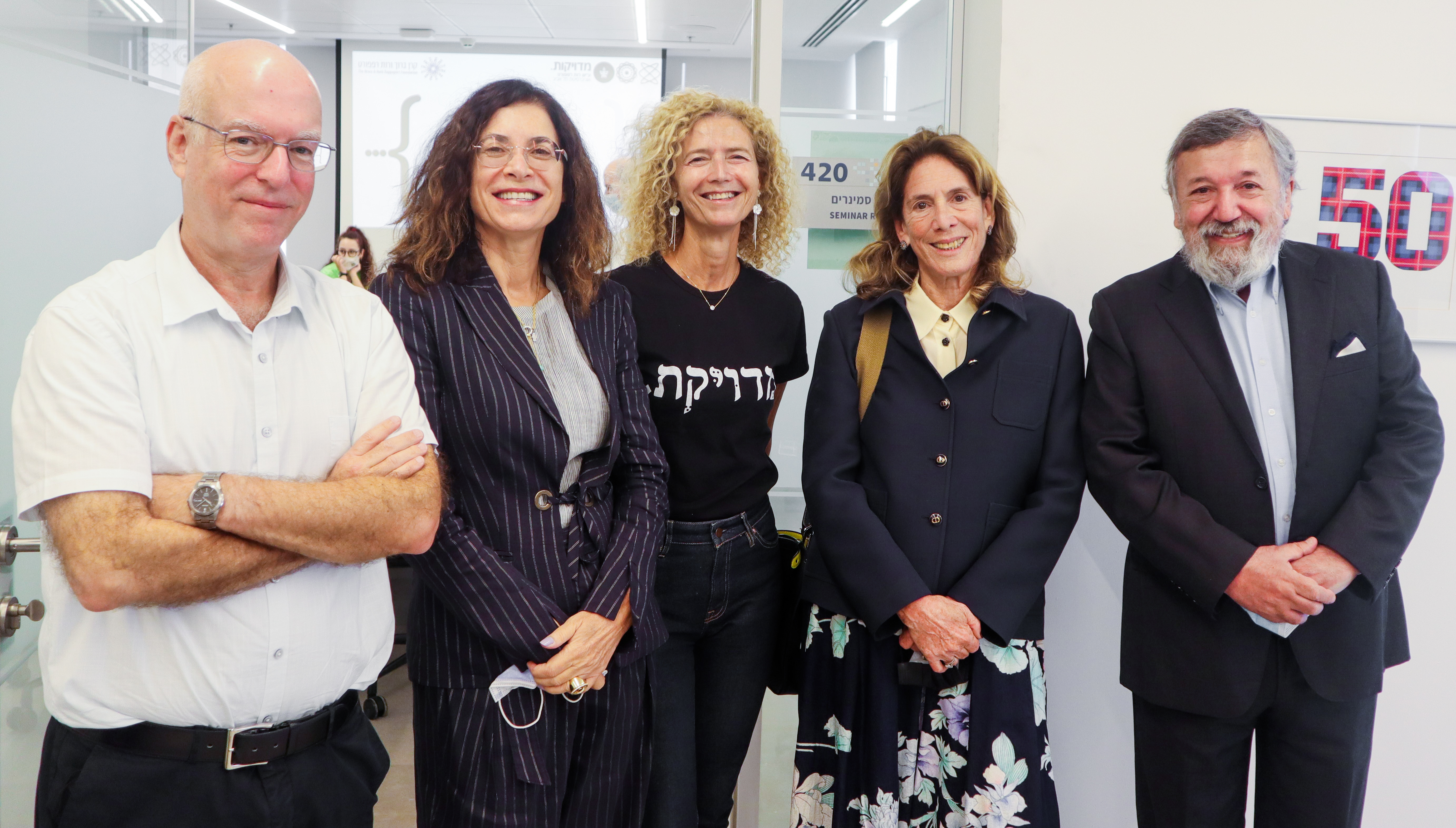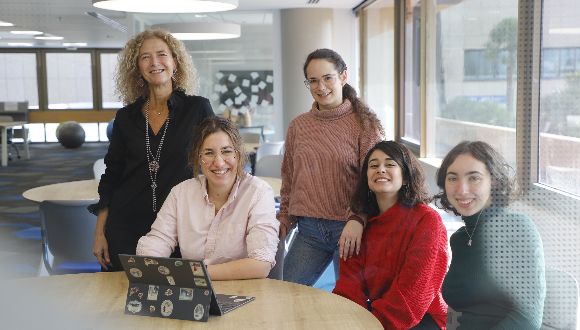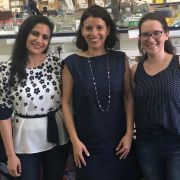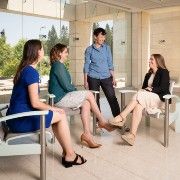TAU Launches Mentorship Network for Women in Exact Sciences
When Oren Barzilai, a first-year math student at TAU’s Raymond and Beverly Sackler Faculty of Exact Sciences, began her studies in October she felt unprepared, discontent and lonely. “Math is a very demanding subject. There is no time to fool around, you need to work very hard from day one,” Barzilai says. “And even if you love it, it’s very hard to survive without support.”
Then, Oren heard about the Faculty’s ExactSHE Mentorship Program. “I knew I wanted to be a part of it right away; it was what I needed right then and there,” she says.
TAU launched ExactSHE in the fall of 2021 in an attempt to redress the acute underrepresentation of women in exact sciences disciplines, especially at the graduate and post-graduate levels. The Program aims to create open dialogue between female faculty members and students, enable them to share knowledge and experiences, and support each other in overcoming obstacles as they advance in their studies and careers.
By the Numbers
“Although 35% of our undergraduate students are women, we lose many along the way. Only 25% of our master’s students are female, and only 15% are in post-doctoral and faculty positions,” says Prof. Tova Milo, TAU’s first female dean of the Exact Sciences Faculty. “There are specific reasons this is the case and when I became the Dean of the Faculty, I was finally in a position to change this.”
Milo enlisted research support from TAU’s Career Development Laboratory and together they formulated a survey that highlighted fears and difficulties exact sciences students might experience. About 800 students, both male and female, filled it out. “The results were predictable yet astounding, when I saw them within my own faculty,” Milo says. Findings showed that while male students were more concerned with future career opportunities and the progress of their studies, women were burdened with emotional issues—feelings of inadequacy, lack of belonging and self-doubt—the “baggage” that can eventually cause them to leave academia and even jobs in the field, she explains.
“These are subjective feelings, and this is really just a question of attitude,” Milo says. “So we decided to build a network that would introduce women to role models and provide them with tools for making positive change in their academic journeys.”
Work in Progress
When Barzilai attended the Program’s first monthly event—a small group mentorship meeting—she left feeling reassured and supported.
“That first meeting made me very happy. We chatted away, shared our difficulties, and suddenly the weight I felt since the beginning of the semester lifted,” Barzilai explains. The meeting also helped her connect with classmates, creating a sense of belonging and shared goals. “The Program opened a lot of doors for me,” she says. “Now I feel at home here.”
Gil Bar Koltun, a graduate student in theoretical math, mentors Barzilai’s group, which includes two more undergraduate math students. She is also a mentee in a group led by a senior faculty member and a doctoral candidate, also from the Raymond and Beverly Sackler School of Mathematics.
“My career and academic goals are to study for a PhD and post-doc, but I foresee a lot of obstacles in my way, especially once I start a family. That’s the reason I also earned a teaching certificate—as a safety net to fall back on,” explains Koltun, who is doing her thesis in game theory. Koltun anticipates that being a scientist and a mother will be very difficult and will count on her mentors’ support when she has children. “Both of them are mothers and hearing them share the ups and downs, tips, and experiences in our meetings is reassuring,” she says.
Bar Koltun and Barzilai agree that ExactShe debunks the myth of a “Wonder Woman”— one who seems to have it all, and instead replaces it with real role models who struggle to overcome challenges but ultimately find solutions that lead to success.
The Path to Better Science
The Program has some 200 participants from all of the Faculty’s disciplines: mathematics, computer science, physics & astronomy, chemistry, and environmental & earth sciences.
All of the mentors receive a stipend. “It was very important to me that these would be paid positions. If the goal is for our students to feel valuable, then we must show them that we value their time,” explains Milo.
At the intimate monthly meetings, which constitute the Program's backbone, mentors implement customized plans created in collaboration with TAU’s Career Lab. Each meeting focuses on a specific topic, such as performing under pressure or dealing with “imposter syndrome” or feelings of ineptitude. The Program also runs larger events for all participants.

Program's Launch. From left: TAU President Prof. Ariel Porat, Board of Governors Chair Dafna Meitar-Nechmad, Prof. Tova Milo, TAU Governor Irith Rappaport, and Boris Krasny of the Rappaport Family Foundation. Credit: Shachar Shachar
The Program was funded with the help of TAU Governor Irith Rappaport through the Rappaport Family Foundation, which is supporting it for the next ten years, as well as other private donors. The partnership was facilitated by Dafna Meitar-Nechmad, the first female Chairperson of TAU’s Board of Governors.
“We see this as an excellent model for creating a strong, supportive community of female researchers,” says TAU Dean of Students Prof. Drorit Neumann, “and we are implementing similar programs at the medical faculty as well as in other units on campus.”
-By Sveta Raskin






